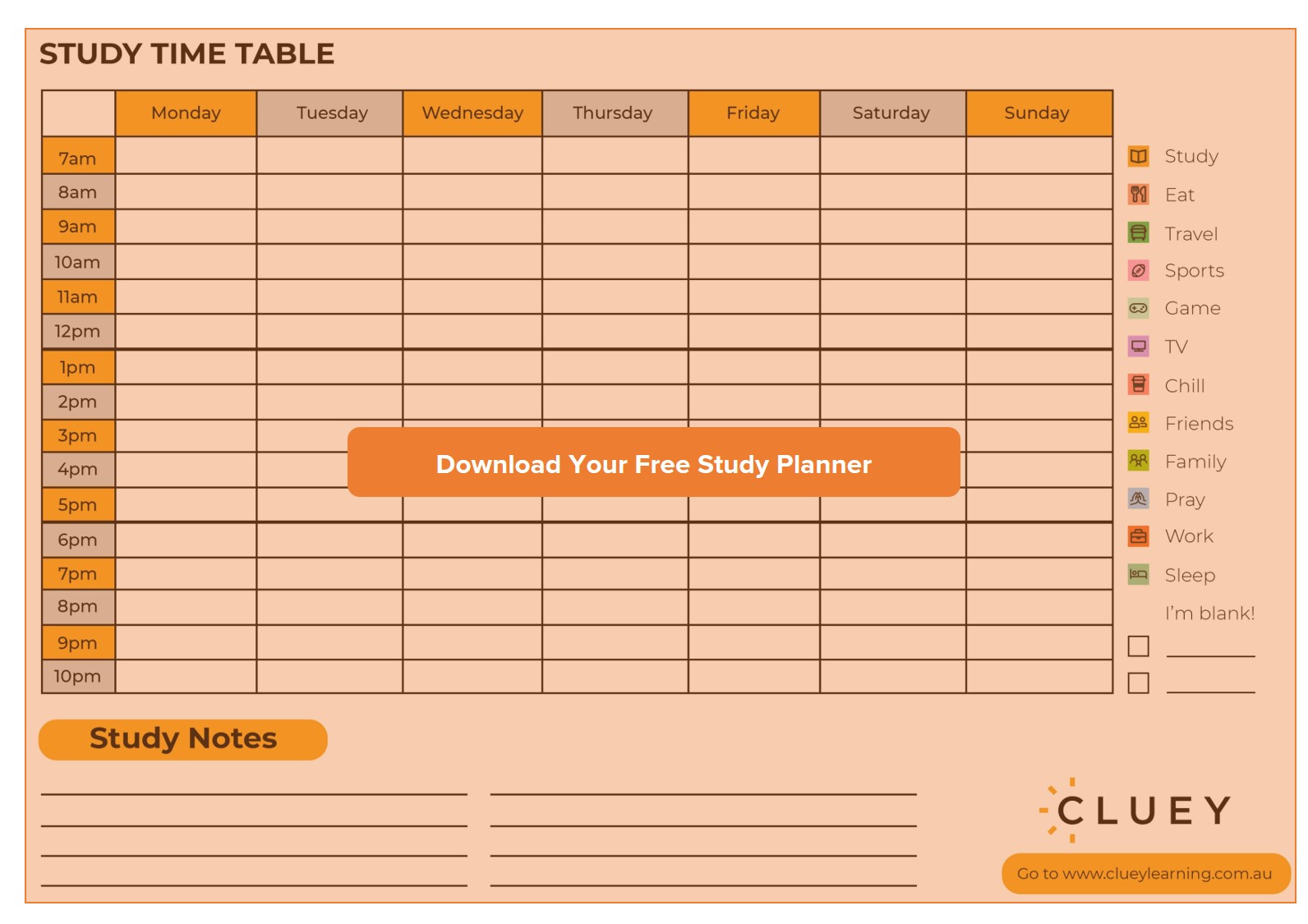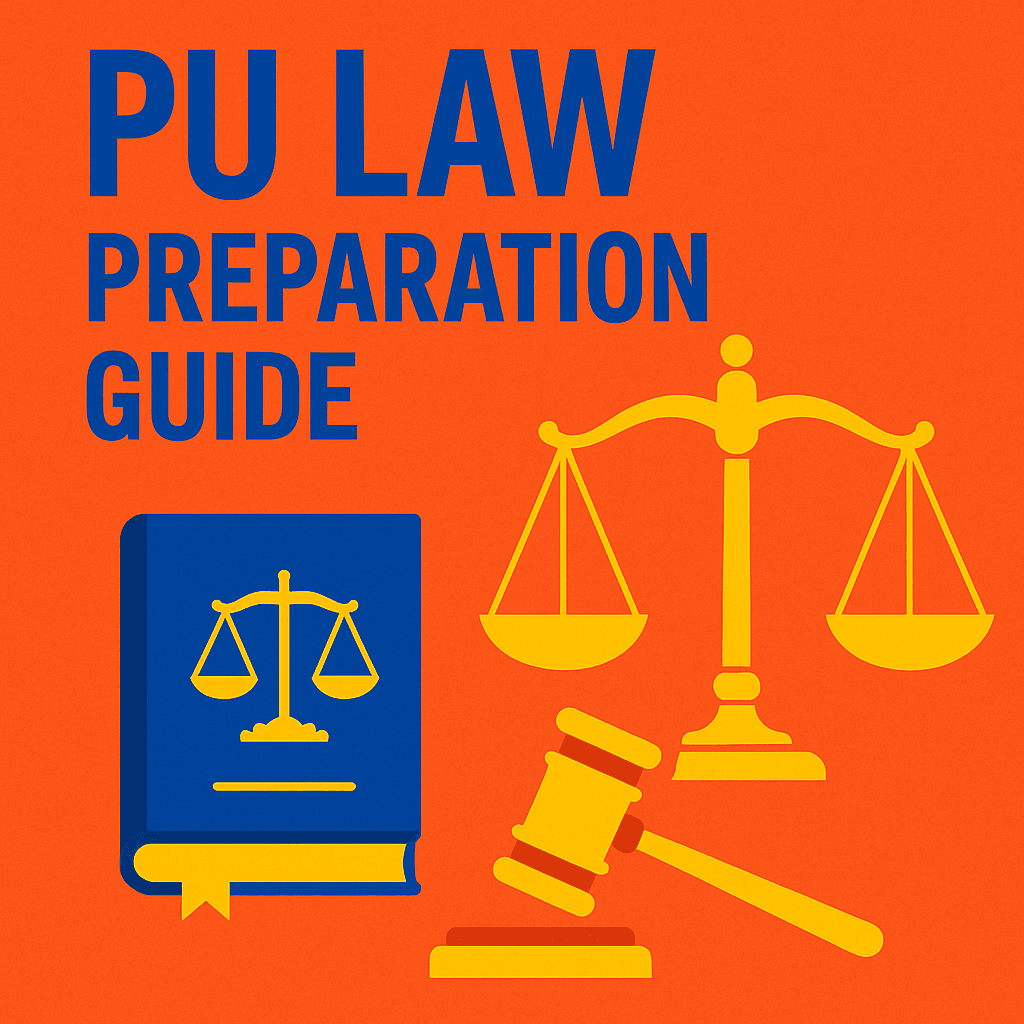About this Guide: This comprehensive PU Law preparation guide has been crafted by the expert faculty at Lawgic Coaching, India’s premier online law entrance coaching institute. With years of experience in mentoring successful law aspirants, we provide you with proven strategies and insights to excel in the Panjab University Law entrance examination.
Table of Contents
- 1. Introduction to PU Law Entrance Exam
- 2. PU Law Exam Overview and Structure
- 3. Detailed Exam Pattern and Marking Scheme
- 4. Complete Syllabus Breakdown
- 5. Eligibility Criteria & Application Process
- 6. 3-Month Strategic Study Plan
- 7. Section-Wise Preparation Strategies
- 8. Time Management Techniques
- 9. Recommended Resources
- 10. Mock Test Strategies
- 11. Importance of Mock Tests
- 12. Common Mistakes To Avoid
- 13. Cut-Off Analysis and Statistics
- 14. Career Prospects After PU Law
- 15. Frequently Asked Questions
1. Introduction to PU Law Preparation

Essential elements of successful PU Law preparation
The journey towards a successful legal career begins with proper preparation for law entrance examinations. Panjab University (PU) Law entrance exam stands as one of the most prestigious gateway examinations for aspiring lawyers seeking admission to quality legal education in Punjab and the northern region of India.
PU Law preparation requires a strategic approach, comprehensive understanding of the exam pattern, and consistent practice. This guide provides you with everything you need to know about excelling in the PU Law entrance examination, from understanding the basic structure to advanced preparation strategies.
Why Choose PU Law? Panjab University’s law programs offer excellent academic standards, experienced faculty, and strong placement opportunities. The university’s law department has consistently produced successful legal professionals who have made significant contributions to the legal field.
At Lawgic Coaching, we have guided thousands of students through their law entrance preparation journey. Our proven methodologies and expert insights form the foundation of this comprehensive preparation guide.
2. PU Law Entrance Exam Overview
The Panjab University Law entrance examination is conducted annually for admissions to both 3-year LLB and 5-year integrated law programs (BA LLB/B.Com LLB). The exam is administered by the university’s law department and serves as the primary selection criterion for aspiring law students.
2.1 Key Information
- Conducting Body: Panjab University, Chandigarh
- Exam Mode: Offline (Pen and Paper Based)
- Language: English
- Frequency: Once a year
- Application Mode: Online through official portals
2.2 Programs Offered
| Program | Duration | Eligibility | Total Seats |
|---|---|---|---|
| 3-Year LLB | 3 Years | Graduate in any discipline | 240 |
| 5-Year BA LLB | 5 Years | 12th Pass (50% marks) | 120 |
| 5-Year B.Com LLB | 5 Years | 12th Pass (50% marks) | 120 |
For detailed application procedures and official notifications, candidates should regularly check the PU Law Admission Portal for 3-year LLB and PU UG Law Portal for 5-year programs.
3. Detailed Exam Pattern & Structure

Structured approach to PU Law exam preparation
3.1 Exam Pattern for 3-Year LLB
| Section | No. of Questions | Marks | Time Allocation |
|---|---|---|---|
| Current Affairs & General Knowledge | 30 | 30 | 25-30 minutes |
| Legal Aptitude | 40 | 40 | 35-40 minutes |
| Reasoning Ability & English | 30 | 30 | 25-30 minutes |
| Total | 100 | 100 | 90 minutes |
3.2 Exam Pattern for 5-Year Law Programs
| Section | No. of Questions | Marks | Time Allocation |
|---|---|---|---|
| General Knowledge & Current Affairs | 25 | 25 | 20-25 minutes |
| Legal Aptitude | 25 | 25 | 20-25 minutes |
| English | 25 | 25 | 20-25 minutes |
| Quantitative Techniques & Logical Reasoning | 25 | 25 | 20-25 minutes |
| Total | 100 | 100 | 90 minutes |
Marking Scheme: Each correct answer carries 1 mark. There is a negative marking of 0.25 marks for each incorrect answer. Unanswered questions carry no penalty.
3.3 Key Exam Features
- Multiple Choice Questions (MCQs) format
- OMR sheet based answering
- Negative marking system
- No sectional time limits
- Calculator not allowed
4. Comprehensive Syllabus Breakdown
Understanding the PU Law preparation syllabus is crucial for effective preparation. Each section requires specific focus and preparation strategies.
4.1 Current Affairs & General Knowledge
Coverage Areas:
- Indian Polity & Constitution: Fundamental Rights, Directive Principles, Constitutional Amendments, Important Articles
- Current Affairs: National and International events (last 12 months), Government Schemes, Awards and Honors
- History: Indian Freedom Struggle, Important Personalities, Significant Events
- Geography: Indian Geography, World Geography, Environmental Issues
- Economics: Basic Economic Concepts, Government Policies, Budget highlights
- General Science: Basic concepts of Physics, Chemistry, Biology
- Sports: National and International Sports events, Famous Personalities
4.2 Legal Aptitude
Key Topics:
- Legal Principles: Basic legal concepts, Legal maxims, Jurisprudence fundamentals
- Indian Legal System: Court structure, Judicial system, Legal procedures
- Constitutional Law: Fundamental Rights, Constitutional provisions, Landmark judgments
- Criminal Law: IPC sections, Criminal procedures, Types of offenses
- Civil Law: Contract law basics, Property law, Family law concepts
- Legal Reasoning: Principle-based questions, Legal analysis, Case studies
- Legal Current Affairs: Recent judgments, Legal reforms, New laws
4.3 English Language & Comprehension
Components:
- Reading Comprehension: Passage-based questions, Inference, Critical analysis
- Grammar: Tenses, Articles, Prepositions, Subject-verb agreement
- Vocabulary: Synonyms, Antonyms, One-word substitutions, Idioms and phrases
- Sentence Correction: Error identification, Sentence improvement
- Para Jumbles: Sentence rearrangement, Coherent paragraph formation
4.4 Logical Reasoning & Mental Ability
Topics Covered:
- Logical Reasoning: Syllogisms, Blood relations, Direction sense, Coding-decoding
- Analytical Reasoning: Puzzles, Seating arrangements, Data sufficiency
- Quantitative Aptitude: Number systems, Percentages, Ratio and proportion, Time and work
- Mathematical Reasoning: Algebraic expressions, Geometry basics, Statistical concepts
5. Eligibility Criteria & Application Process
5.1 Eligibility for 3-Year LLB
- Bachelor’s degree in any discipline from a recognized university
- Minimum 50% marks for General category (45% for SC/ST/OBC)
- No upper age limit
- Final year graduates can also apply (results awaited)
5.2 Eligibility for 5-Year Law Programs
- 12th standard or equivalent from a recognized board
- Minimum 50% marks for General category (45% for SC/ST/OBC)
- Age limit: Maximum 22 years for General category (25 for SC/ST/OBC)
- Stream: Any (Science, Commerce, Arts)
5.3 Application Process
- Online Registration: Visit the official portal and register with basic details
- Fill Application Form: Complete all required information accurately
- Upload Documents: Scan and upload all necessary certificates
- Pay Application Fee: Complete payment through online mode
- Download Admit Card: Print admit card after successful application
For step-by-step guidance on application procedures, you can refer to our detailed guide on completing law entrance applications.
Important: Keep checking the official websites regularly for updates on application dates, exam schedules, and other important notifications. Applications are typically open for 3-4 weeks only.
6. Strategic 3-Month Study Plan

Structured study timetable for effective PU Law preparation
A well-structured study plan is the cornerstone of successful PU Law preparation. This 3-month plan is designed to provide comprehensive coverage while allowing flexibility for individual learning patterns.
6.1 Month 1: Foundation Building
Week 1-2: Assessment & Basic Coverage
- Day 1-3: Take a diagnostic test to identify strengths and weaknesses
- Day 4-7: Begin Legal Aptitude basics – Legal principles and maxims
- Day 8-10: Start Current Affairs compilation from past 6 months
- Day 11-14: English grammar fundamentals and vocabulary building
Week 3-4: Core Concept Development
- Focus Areas: Constitutional law basics, Indian polity, Legal reasoning introduction
- Daily Schedule: 4-5 hours study, 1 hour current affairs, 30 minutes vocabulary
- Practice: 20-25 MCQs daily from each section
- Review: Weekly assessment tests
6.2 Month 2: Intensive Preparation
Week 5-6: Advanced Topics
- Legal Aptitude: Criminal law basics, Civil law concepts, Landmark judgments
- Current Affairs: Focus on legal current affairs and recent judgments
- English: Reading comprehension practice, Para jumbles
- Reasoning: Logical puzzles, Analytical reasoning
Week 7-8: Mock Test Phase Begins
- Daily Routine: 2-3 hours concept study, 1 hour mock test, 1 hour analysis
- Mock Tests: 2-3 full-length tests per week
- Weak Area Focus: Extra 1 hour daily on identified weak sections
- Current Affairs: Daily newspaper reading and note-making
6.3 Month 3: Final Preparation & Revision
Week 9-10: Intensive Mock Tests
- Mock Tests: 1 full test daily + 2 sectional tests
- Analysis: 2 hours daily for thorough analysis
- Revision: Quick revision of all topics
- Current Affairs: Last 3 months intensive revision
Week 11-12: Final Sprint
- Strategy: Focus on time management and accuracy
- Practice: Previous year papers and sample tests
- Revision: Formula sheets, legal maxims, important facts
- Last Week: Light revision, confidence building, stress management
6.4 Daily Study Schedule Template
| Time Slot | Activity | Duration |
|---|---|---|
| 6:00 AM – 7:00 AM | Current Affairs & Newspaper | 1 hour |
| 8:00 AM – 10:00 AM | Legal Aptitude Study | 2 hours |
| 11:00 AM – 12:30 PM | English & Reasoning | 1.5 hours |
| 2:00 PM – 3:30 PM | Mock Test / Practice | 1.5 hours |
| 4:00 PM – 5:00 PM | Analysis & Revision | 1 hour |
| 7:00 PM – 8:00 PM | General Knowledge | 1 hour |
7. Section-wise Preparation Strategies
Each section of the PU Law entrance exam requires specific preparation strategies. Understanding these nuances can significantly impact your overall performance.
7.1 Legal Aptitude Preparation Strategy
Key Approach:
- Concept Building: Start with basic legal principles and terminology
- Case Law Study: Read landmark judgments and understand their significance
- Legal Maxims: Memorize and understand application of important legal maxims
- Current Legal Affairs: Stay updated with recent legal developments
- Practice: Solve principle-based questions regularly
Recommended Study Approach:
- Foundation Phase: Study basic concepts of jurisprudence
- Application Phase: Practice applying principles to factual situations
- Analysis Phase: Develop ability to analyze legal scenarios
- Revision Phase: Regular review of concepts and maxims
7.2 Current Affairs & General Knowledge Strategy
Systematic Approach:
- Daily Reading: Spend 1 hour daily reading newspapers
- Monthly Compilation: Create monthly current affairs notes
- Static GK: Focus on Indian polity, constitution, and history
- Legal Current Affairs: Special focus on legal news and judgments
- Monthly Magazines: Read reliable current affairs magazines
Topic Priority Matrix:
| High Priority | Medium Priority | Low Priority |
|---|---|---|
| Indian Constitution | International Affairs | Sports (detailed) |
| Government Schemes | Environmental Issues | Entertainment |
| Legal Current Affairs | Science & Technology | Regional News |
| Important Appointments | Economic Policies | Cultural Events |
7.3 English Language Preparation Strategy
Comprehensive Approach:
- Reading Habit: Read quality newspapers, magazines, and books daily
- Vocabulary Building: Learn 10-15 new words daily with usage
- Grammar Practice: Focus on commonly tested grammar rules
- Comprehension Skills: Practice reading comprehension daily
- Error Identification: Regular practice of sentence correction
7.4 Logical Reasoning Preparation Strategy
Skill Development Focus:
- Pattern Recognition: Practice identifying logical patterns
- Analytical Thinking: Develop step-by-step problem-solving approach
- Speed Building: Regular timed practice sessions
- Accuracy Focus: Quality over quantity in practice
- Variety Practice: Expose yourself to different question types
8. Time Management Techniques

Organized study materials for effective time management
Effective time management during the 90-minute PU Law entrance exam is crucial for maximizing your score. Here are proven techniques to optimize your exam performance:
8.1 Pre-Exam Time Management
The 5-Minute Rule:
- Minutes 1-2: Quick scan of the entire paper
- Minutes 3-4: Identify easy, moderate, and difficult questions
- Minute 5: Plan your section-wise time allocation
8.2 Section-wise Time Allocation Strategy
| Section | Questions | Ideal Time | Time per Question |
|---|---|---|---|
| Current Affairs & GK | 30 | 25 minutes | 50 seconds |
| Legal Aptitude | 40 | 40 minutes | 60 seconds |
| English & Reasoning | 30 | 20 minutes | 40 seconds |
| Review & Guessing | – | 5 minutes | – |
8.3 During Exam Strategies
The Three-Pass System:
- First Pass (40 minutes): Answer all questions you’re confident about
- Second Pass (35 minutes): Tackle moderate difficulty questions
- Third Pass (15 minutes): Review answers and make educated guesses
8.4 Common Time Management Mistakes
- Spending too much time on difficult questions early
- Not leaving time for review
- Getting stuck on calculation-heavy questions
- Not using the elimination technique effectively
- Panic-induced random guessing
8.5 Time-Saving Techniques
- Elimination Method: Remove obviously wrong options first
- Educated Guessing: Use partial knowledge to narrow down choices
- Skip and Return: Don’t get stuck; move on and return later
- Pattern Recognition: Look for patterns in answer choices
- Quick Calculations: Use shortcuts and approximations
9. Recommended Books & Resources
Selecting the right study materials is crucial for effective PU Law preparation. Here’s a comprehensive list of recommended books and resources:
9.1 Legal Aptitude Books
| Book Title | Author | Why Recommended |
|---|---|---|
| Legal Aptitude for CLAT & LLB Entrance | A.P. Bhardwaj | Comprehensive coverage, good practice questions |
| LLB Entrance Examination Guide | Jaiswal Pankaj Kumar | Specific to LLB entrances, updated content |
| Legal Awareness and Legal Reasoning | A.P. Bhardwaj | Excellent for reasoning skills development |
| Universal’s Guide to CLAT & LLB | Universal Publications | All-in-one preparation guide |
9.2 General Knowledge & Current Affairs
| Resource Type | Recommendation | Usage |
|---|---|---|
| Daily Newspaper | The Hindu, Indian Express | Daily reading for current affairs |
| Monthly Magazine | Pratiyogita Darpan, Competition Success Review | Monthly current affairs compilation |
| Static GK Book | Lucent’s General Knowledge | Static facts and general knowledge |
| Indian Polity | M. Laxmikanth | Constitutional and political knowledge |
9.3 English Language Books
- Word Power Made Easy by Norman Lewis – Vocabulary building
- Objective English by Hari Mohan Prasad – Grammar and comprehension
- High School English Grammar by Wren & Martin – Grammar fundamentals
- How to Prepare for Verbal Ability by Arun Sharma – CAT-level English preparation
9.4 Logical Reasoning Books
- A Modern Approach to Logical Reasoning by R.S. Aggarwal
- Analytical Reasoning by M.K. Pandey
- Test of Reasoning by Edgar Thorpe
- Logical and Analytical Reasoning by A.K. Gupta
9.5 Online Resources
Free Resources:
- Government Websites: Official notifications and updates
- Legal Databases: SCC Online (for judgments)
- Current Affairs Websites: PIB, Government portals
- YouTube Channels: Educational content for law preparation
Premium Coaching Resources:
For comprehensive preparation with expert guidance, consider joining Lawgic Coaching’s specialized PU Law preparation program. Our courses include:
- Live interactive classes with experienced faculty
- Comprehensive study materials and practice tests
- Personalized doubt resolution sessions
- Regular mock tests and performance analysis
- Strategic preparation guidance
10. Mock Test Strategies
Mock tests are the backbone of successful PU Law preparation. They help in time management, concept reinforcement, and building exam temperament.
10.1 Mock Test Schedule
Progressive Test Strategy:
| Preparation Phase | Test Frequency | Test Type | Focus Area |
|---|---|---|---|
| Month 1 | 2 per week | Sectional Tests | Concept strengthening |
| Month 2 | 3-4 per week | Mixed Tests | Integration and speed |
| Month 3 | 1 daily | Full-length Tests | Exam simulation |
| Last Week | 1 every 2 days | Previous Year Papers | Final preparation |
10.2 Mock Test Analysis Framework
After Each Mock Test:
- Immediate Review (30 minutes): Check answers and understand mistakes
- Error Analysis (45 minutes): Categorize errors – silly mistakes, conceptual gaps, time management
- Concept Revision (60 minutes): Revise topics where mistakes occurred
- Strategy Adjustment: Modify time allocation and approach based on analysis
10.3 Performance Tracking
| Metric | Target Range | Improvement Strategy |
|---|---|---|
| Overall Accuracy | 75-85% | Focus on eliminating silly mistakes |
| Legal Aptitude Score | 30-35/40 | Strengthen conceptual understanding |
| Time Management | 85+ questions attempted | Practice speed-accuracy balance |
| Current Affairs Score | 22-27/30 | Regular current affairs updates |
10.4 Mock Test Best Practices
- Exam Conditions: Take tests in exam-like environment
- Timing: Stick to actual exam timing (90 minutes)
- No Breaks: Complete the test in one sitting
- OMR Practice: Use OMR sheets when available
- Analysis Priority: Spend more time on analysis than taking tests
11. Common Mistakes to Avoid
Learning from Others’ Mistakes: Understanding common pitfalls can save valuable time and improve your preparation efficiency significantly.
11.1 Preparation Phase Mistakes
Strategic Errors:
- Unbalanced Preparation: Focusing too much on one section while neglecting others
- Information Overload: Using too many books and resources simultaneously
- Irregular Study Schedule: Inconsistent daily study routine
- Ignoring Mock Tests: Not taking enough practice tests
- Passive Learning: Reading without active recall and practice
11.2 Exam Day Mistakes
Critical Errors to Avoid:
- Poor Time Management: Spending too much time on difficult questions
- Negative Marking Ignorance: Random guessing without strategy
- OMR Errors: Incorrect marking or smudging
- Question Misreading: Not reading questions carefully
- Panic Response: Getting overwhelmed and losing composure
11.3 Section-wise Common Mistakes
Legal Aptitude Section:
- Not reading the legal principle carefully
- Applying personal knowledge instead of given principles
- Ignoring key facts in the problem
- Overthinking simple applications
Current Affairs Section:
- Relying on outdated information
- Ignoring legal current affairs
- Not connecting events with their legal implications
- Focusing on trivial news instead of important events
English Section:
- Not reading comprehension passages completely
- Overthinking grammar rules
- Ignoring context in vocabulary questions
- Rushing through sentence correction
11.4 How to Avoid These Mistakes
Prevention Strategies:
- Regular Self-Assessment: Weekly evaluation of preparation progress
- Mentor Guidance: Seek advice from experienced teachers or successful candidates
- Peer Learning: Discuss doubts and strategies with fellow aspirants
- Mock Test Analysis: Thorough analysis of each practice test
- Stress Management: Regular breaks and relaxation techniques
12. Cut-off Analysis & Statistics
Understanding the cut-off trends and statistics helps in setting realistic targets and planning preparation accordingly.
12.1 Historical Cut-off Trends
65-70
Average Cut-off Range (General)
55-60
Average Cut-off Range (OBC)
45-50
Average Cut-off Range (SC/ST)
4000+
Average Annual Applicants
12.2 Year-wise Cut-off Analysis
| Year | General Category | OBC Category | SC/ST Category | Total Applicants |
|---|---|---|---|---|
| 2024 | 68 | 58 | 48 | 4200 |
| 2023 | 65 | 55 | 45 | 3800 |
| 2022 | 70 | 60 | 50 | 4100 |
| 2021 | 62 | 52 | 42 | 3500 |
12.3 Factors Affecting Cut-off
Key Determinants:
- Number of Applicants: Higher applications generally increase cut-off
- Exam Difficulty: Easier exams result in higher cut-offs
- Number of Seats: Seat availability directly impacts cut-off
- Reservation Policy: Category-wise seat distribution affects individual cut-offs
- Previous Year Trends: Historical patterns influence expectations
12.4 Target Score Recommendations
| Category | Safe Score | Competitive Score | Minimum Qualifying |
|---|---|---|---|
| General | 75+ | 70-74 | 65-69 |
| OBC | 65+ | 60-64 | 55-59 |
| SC/ST | 55+ | 50-54 | 45-49 |
12.5 Section-wise Performance Analysis
Top Performers’ Average Scores:
- Legal Aptitude: 32-35 out of 40 (80-87%)
- Current Affairs: 24-27 out of 30 (80-90%)
- English & Reasoning: 22-25 out of 30 (73-83%)
- Overall Accuracy: 78-85%
13. Post-Exam Counseling Process
After successfully clearing the PU Law entrance exam, understanding the counseling process is crucial for securing admission in your preferred program.
13.1 Counseling Schedule
| Stage | Timeline | Activity |
|---|---|---|
| Result Declaration | 2-3 weeks after exam | Check scorecard and rank |
| Counseling Registration | 1 week after results | Online registration for counseling |
| Document Verification | As per schedule | Physical/online verification |
| Seat Allotment | Based on merit & preference | Seat allocation announcement |
| Admission Confirmation | Within specified dates | Fee payment and admission |
13.2 Required Documents
Essential Documents Checklist:
- Academic Certificates: 10th, 12th, and graduation mark sheets
- Identity Proof: Aadhar card, passport, or driving license
- Category Certificate: SC/ST/OBC certificate (if applicable)
- Income Certificate: For fee concession claims
- Domicile Certificate: For state quota benefits
- Passport Size Photographs: Recent colored photographs
- Admit Card & Scorecard: Original entrance exam documents
13.3 Seat Allotment Process
Merit-based Allocation:
- Rank-wise Consideration: Higher rank gets first preference
- Category Reservation: Seats allocated as per reservation policy
- Choice Filling: Candidates fill program and college preferences
- Automatic Allotment: System allocates based on merit and choice
- Multiple Rounds: Usually 3-4 rounds of counseling
13.4 Admission Fee Structure
| Component | 3-Year LLB | 5-Year Law |
|---|---|---|
| Admission Fee | ₹5,000 | ₹5,000 |
| Annual Tuition Fee | ₹25,000 | ₹30,000 |
| Development Fee | ₹3,000 | ₹3,000 |
| Other Charges | ₹2,000 | ₹2,000 |
13.5 Important Tips for Counseling
- Research Programs: Understand different law programs offered
- Document Preparation: Keep all documents ready and verified
- Multiple Options: Fill all available choices in preference order
- Backup Plans: Consider alternative colleges and programs
- Deadline Adherence: Complete all formalities within stipulated time
14. Career Prospects After PU Law
A law degree from Panjab University opens numerous career opportunities in the legal profession and beyond. Understanding these prospects helps in making informed decisions about specialization and career planning.
14.1 Traditional Legal Careers
Core Legal Professions:
- Litigation Lawyer: Practice in courts, handle cases, represent clients
- Corporate Lawyer: Legal counsel for companies, contract drafting, compliance
- Government Lawyer: Public prosecutor, legal advisor to government departments
- Judicial Services: Judge, magistrate through competitive examinations
- Legal Consultant: Independent practice, specialized legal advice
14.2 Alternative Career Paths
Non-traditional Opportunities:
- Legal Journalism: Writing on legal issues, court reporting
- Legal Education: Teaching law, legal research, academic writing
- Legal Process Outsourcing: Legal research, document review, paralegal work
- Corporate Compliance: Regulatory compliance, risk management
- Legal Technology: Legal software development, legal tech startups
- Alternative Dispute Resolution: Mediation, arbitration, conciliation
14.3 Salary Expectations
| Career Path | Entry Level (0-2 years) | Mid Level (3-7 years) | Senior Level (8+ years) |
|---|---|---|---|
| Litigation Lawyer | ₹3-6 Lakhs | ₹8-15 Lakhs | ₹20-50 Lakhs+ |
| Corporate Lawyer | ₹6-12 Lakhs | ₹15-30 Lakhs | ₹40-1 Crore+ |
| Government Service | ₹4-8 Lakhs | ₹10-18 Lakhs | ₹20-40 Lakhs |
| Judicial Services | ₹6-10 Lakhs | ₹12-20 Lakhs | ₹25-50 Lakhs |
14.4 Specialization Areas
Criminal Law
High demand, diverse cases
Corporate Law
Lucrative, growth-oriented
Constitutional Law
Prestigious, impactful
Intellectual Property
Emerging, technology-focused
14.5 Skills Development for Career Success
Essential Skills:
- Communication Skills: Oral and written communication excellence
- Research Abilities: Legal research, case law analysis
- Analytical Thinking: Problem-solving, logical reasoning
- Negotiation Skills: Client counseling, dispute resolution
- Technology Proficiency: Legal software, digital tools
- Business Acumen: Understanding of business and finance
14.6 Professional Development Opportunities
- Bar Council Enrollment: Essential for legal practice
- Continuing Legal Education: Regular skill updates and learning
- Professional Associations: Joining legal societies and organizations
- Internships: Practical experience with courts and law firms
- Networking: Building professional relationships in legal community
15. Frequently Asked Questions
Q1. What is the exam pattern for PU Law entrance exam?
The PU Law entrance exam is a 90-minute offline test with 100 multiple-choice questions. For 3-year LLB: 30 questions each from Current Affairs & GK, and English & Reasoning, plus 40 from Legal Aptitude. For 5-year programs: 25 questions each from four sections including Quantitative Techniques.
Q2. Is there negative marking in PU Law entrance exam?
Yes, there is negative marking of 0.25 marks for each incorrect answer. Each correct answer carries 1 mark, and unanswered questions carry no penalty.
Q3. What are the eligibility criteria for PU 3-year LLB?
Candidates must have a bachelor’s degree in any discipline from a recognized university with minimum 50% marks (45% for SC/ST/OBC). There is no upper age limit for 3-year LLB.

